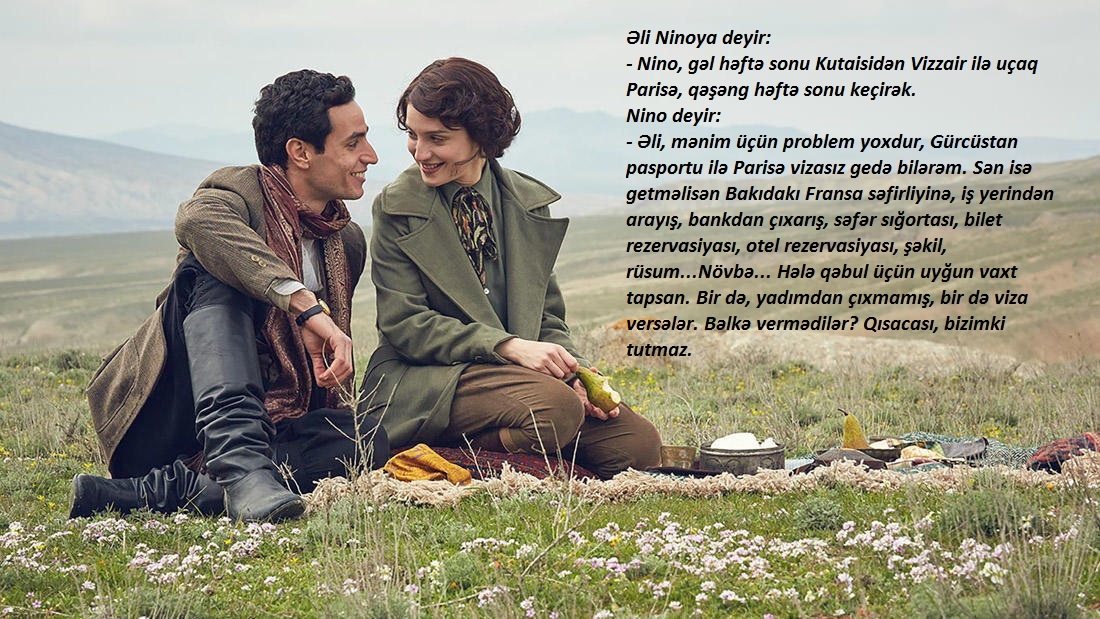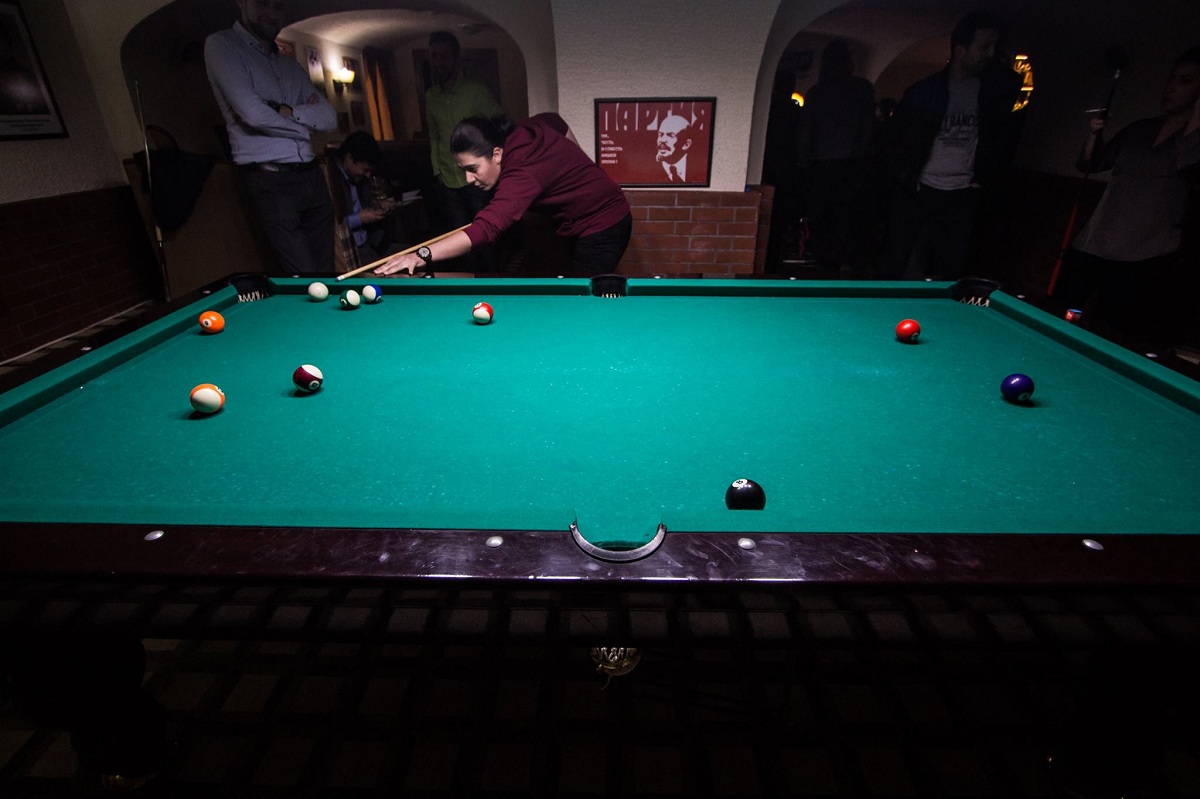Azerbaijan and the European Union: what’s the problem?
Collaboration with the European Union and integration with Europe is the course that the leaders of independent Azerbaijan have declared throughout the history of the state.
Since 2009 Azerbaijan has been cooperating with the European Union as part of the Eastern Partnership program which consists of six EU neighboring countries: Azerbaijan, Georgia, Moldova, Ukraine, Belarus, and Armenia. Before that, in 1999 Azerbaijan signed an agreement with the EU on partnership and cooperation.
The goals of the Eastern Partnership program are to strengthen the integration of member countries into the European economy and improvement of other aspects of their lives according to European standards. Of them, Georgia, Moldova, and Ukraine have signed an agreement which has allowed them, among other things, to obtain visa-free travel to European Union member countries.
The same agreement was to be concluded by Azerbaijan and was announced on 6 July 2016 at which time the relevant documents were signed. In February of this year, bilateral negotiations began.
On 12 September when Kestutis Jankauskas, the newly appointed Head of the European Union Delegation to the Republic of Azerbaijan handed over his new credentials to President Ilham Aliyev, he spoke confidently about intensifying the collaboration.
However, on 22 September Deputy Foreign Minister Mahmud Mammadguliyev told reporters that the agreement with the EU would not be signed this year.
Visas Again?
More recently in Tbilisi, the capital of neighboring Georgia, they have been celebrating the adoption of visa-free travel to Schengen Zone countries. Social networks in Baku were filled with bare envy towards their neighbors: a meme spread across Facebook with the characters of a popular Kurban Said novel and film of the same name, ‘Ali and Nino’.

If the contract with the EU is an opportunity for ordinary citizens to visit new destinations, then it also strengthens economic ties with European countries (with which Azerbaijan conducts intensive trade) as well as the political position of the state as a whole.
The European Union is not the same anymore
So why is it not possible to sign the agreement this year?
Political scientist and president of the public forum ‘In the name of Azerbaijan’, Eldar Namazov, commented:
“The European Union is in a transition period. The organization should resolve its internal problems after Brexit. There’s a rather big difference between the European Union of 15-20 years ago and the current one.”
Indeed, considering that Greece, Portugal, and Italy have been on the verge of bankruptcy, the EU’s problems with the banking system and current affairs in Catalonia, not to mention the UK’s decision to withdraw from the union, it no longer seems to be a stronghold of stability as it was 20 years ago.
The Karabakh conflict: neither ours, nor theirs
Eldar Namazov said that the impediment in signing the agreement with the EU was caused, among other things, by a contradiction of the treaty’s terms and the interests of Azerbaijan in the Karabakh conflict.
“The European Union seems to be trying to demonstrate a neutral position in the Nagorno-Karabakh issue, and justifies it by the fact that Armenia is also a member of the ‘Eastern Partnership’ program and that certain documents must be signed with them. In fact, such an approach contradicts the resolutions of the UN Security Council. Additionally, the European Parliament also adopted several resolutions on the Nagorno-Karabakh issue. It directly refers to the occupation of land, but for some reason the documents adopted by the European Parliament are not taken into account by the European Commission. As a result, Armenia, under Russian pressure, refused to sign an association agreement with the European Union. Both countries are being deprived of the opportunity to join the association agreement.”
First human rights, then a visa-free regime
Another painful aspect of Azerbaijan’s integration into any European organization is the human rights situation.
Today there are more than 160 political prisoners in Azerbaijan (according to a list compiled by local human rights activists). Many of them are recognized by Amnesty International as prisoners of conscience, and the European Court has repeatedly demanded the release of these prisoners such as Ilgar Mammadov.
However, the release of many prisoners from detention in mid-September, including several individuals who were on the list of political prisoners, has been regarded as a gesture by the Azerbaijani authorities prior to the Brussels summit.
However, Eldar Namazov, a political scientist, believes that this was not due to the Brussels summit, but rather to a discussion in the US Senate at the time regarding the application of the “Magnitsky Act” in Azerbaijan:
“The fact is the document had already passed through the subcommittee and was supposed to be discussed. The release of prisoners was aimed at normalizing relations with the USA.”
Elkhan Shahingolu says that Azerbaijan should carry out thorough reforms in the spheres of human rights, and democratization:
“It’s necessary to solve the political prisoner problem once and for all. If we expect support from America and Europe in the Nagorno-Karabakh conflict, we need to speed up the resolution of other issues.”
Citizens of Tbilisi celebrating visa-free travel.
Double standards and offended officials
Azerbaijani officials responded to a report by international organizations regarding the freedom of speech and human rights with arguments about double standards applied to Azerbaijan.
Deputy Chairman of the Committee on Legal Policy and State Building of Milli Majlis, Deputy Rovshan Rzayev said:
“Unfortunately, double standards apply to Azerbaijan. The European Union and Azerbaijan are working on a certain agreement. Azerbaijan is an independent state. It has strategic relations with Russia and will build relationships with a number of European states.”
The Former ‘Big Brother’
The expansion of Azerbaijan’s relations with international European organizations has another important aspect: it has to maneuver between the West and Russia, who are competing for influence in the region.
Here’s what the pro-Russian site Novoe Vremya wrote about the upcoming signing of the agreement with the EU:
“Brussels initially followed tactics so as not to differentiate between the aggressor and his victim by involving both Azerbaijan and Armenia in their ‘Eastern Neighborhood’ and ‘Eastern Partnership’ programs. All due to these programs, agreements, and energy projects being organized with one goal: strengthening the geopolitical influence of the West in our region, as opposed to the interests of Moscow.”

Political scientist, Eldar Namazov, says that Russia jealously refers to the issue of integration of former USSR countries into Europe as follows:
“And it openly demonstrates this. In addition to Russia, one must also take the very complex geopolitical environment of Azerbaijan into consideration. Looking at the countries surrounding Azerbaijan, we see Russia on one side, Iran on another, and the third, Armenia which is completely under the control of Russia. Our only strategic partner is Georgia. We have a rather complicated relationship with the other countries.”
Head of the Atlas Research Center, Elkhan Shakhinoglu, believes that relations with the European Union won’t be affected by Russia’s influence:
“Azerbaijan isn’t a member of the Eurasian Economic Union. Azerbaijan also isn’t Armenia, which under Russia’s influence, refused a partnership with the European Union. We are free to establish a more intensive partnership with the European Union. If Azerbaijan strengthened relations with NATO, and, like Georgia and Ukraine, set the goal of becoming a member of NATO for itself, yes, it would face strong pressure from Russia. The European Union is an economic organization though, and Azerbaijan wants to expand its economy. I don’t think there would be strong pressure from Russia in this sense.”
Will they sign the contract or not?
Deputy Foreign Minister, Mahmud Mammadguliyev had difficulty saying at what stage the document on the new agreement with the European Union was:
“We’re taking our time. Both sides have their own position. They should be coordinated. It’s better late, but of quality. The document also discusses political issues. Reflected in the document is the independence of Azerbaijan, the inviolability of borders.
“The agreement cannot be signed until the end of this year. This can only happen if we accept everything they say. But that would be wrong.”
Denis Daniildis, First Advisor to the EU representation in Azerbaijan, told RIA Novosti that Brussels hopes to sign a partnership agreement this year:
“There is still hope, but we still need to work. We have a very busy schedule both here and in Brussels.”
Daniildis made it clear that the position of the Azerbaiijani Foreign Ministry doesn’t contradict the EU’s position:
“Quality is more important than speed for us too.”





The EU Delegation to Azerbaijan organized several ‘familiarization’ actions under the name ‘European Small Town’, and the same action passed on 23 September in Sheki. The slogan, in the local dialect, is written on Shekin’s baklava, ‘Europe is here, right in your mouth’, which is displayed on a tray, next to European sweets.
Why Azerbaijan in Europe?
Political Scientist, Zardusht Alizade, says that Azerbaijan is important as a source of raw materials for Europe:
“Azerbaijan mainly sells oil and gas abroad. Europe buys oil and gas. Europe is interested in buying gas from Azerbaijan, Turkmenistan, and in the future from Iran. That’s why Azerbaijan has a certain importance for Europe as a source of raw materials.
“As for Europe – we buy everything from Europe, from modern cars, to electronics, appliances, machinery, production equipment, consumer goods, food, refrigerators, and telephones. Therefore, both sides are interested in mutual trade exchange. And on the other hand, rich people of Azerbaijan will keep and spend their money in Europe, they’ll buy mansions, relax, and seek medical treatment there.
Yes, there is a mutual need. So, the relations are normal, they will develop, and the agreement will be signed.”




















